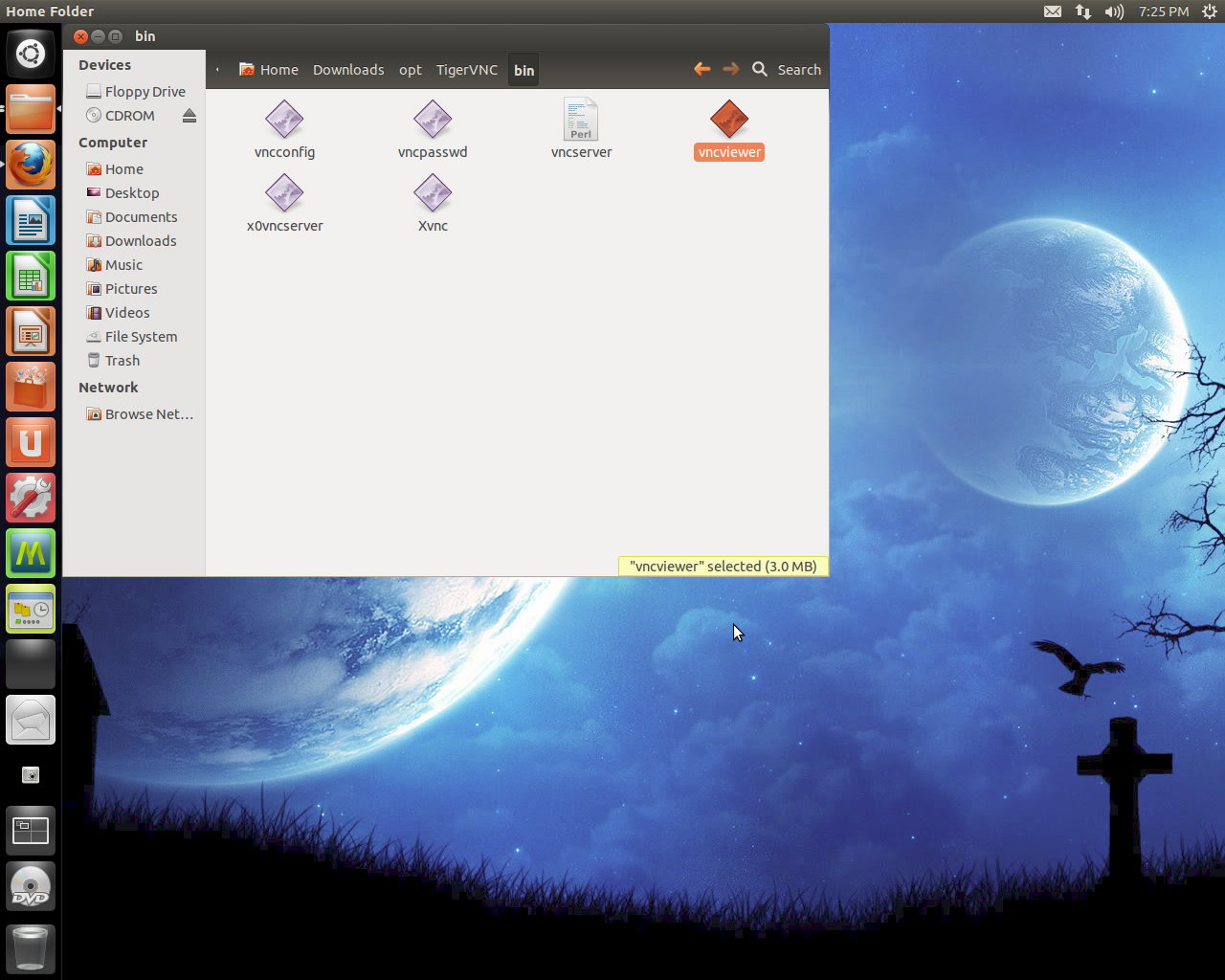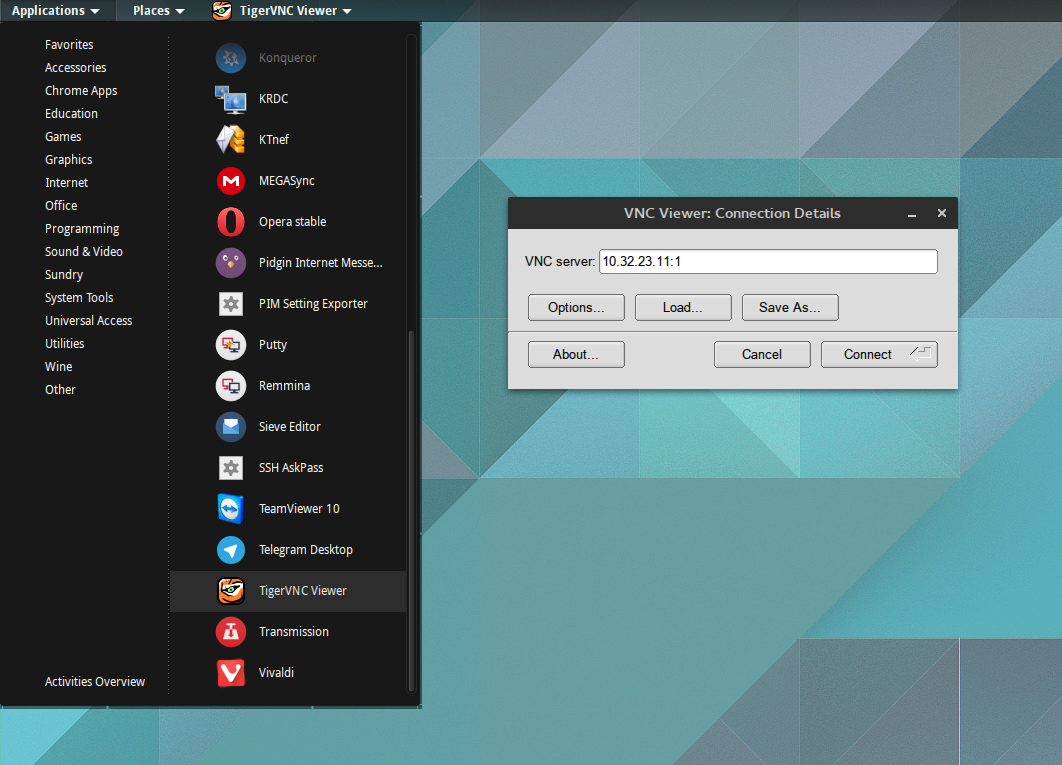

The number in the file corresponds to a TCP port. Each user defined in this file will have a corresponding port on which its session will run.
Edit /etc/tigervnc/ers to define user mappings. Create a password using vncpasswd which will store the hashed password in ~/.vnc/passwd. Users are encouraged to read vncserver(8) for the complete list of configuration options. Note: Linux systems can have as many VNC servers as memory allows, all of which will be running in parallel to each other.įor a quick start, see the steps below. Running vncserver for virtual (headless) sessions Initial setup 9.8 No window decoration / borders / titlebars / cannot move windows around. 9.7 "Authentication is required to create a color managed device" dialog when launching GNOME 3. 9.6 Copying clipboard content from the remote machine. 9.4 Empty black window with mouse cursor. 9.1 Terminals in vncserver start in / (root dir). 8.4.2 Mapping the keyboard key presses back to mouse button clicks on the server. 8.4.1 Substituting mouse back/forward buttons with keyboard keys XF86Back/XF86Forward. 8.4 Workaround for mouse back and forward buttons not working. #Tigervnc vnc android
7.3 Connecting to a vncserver from Android devices over SSH.
 5 Running Xvnc with XDMCP for on demand sessions. 4.2 Starting and stopping x0vncserver via systemd. 4 Running x0vncserver to directly control the local display.
5 Running Xvnc with XDMCP for on demand sessions. 4.2 Starting and stopping x0vncserver via systemd. 4 Running x0vncserver to directly control the local display. 
2 Running vncserver for virtual (headless) sessions.










